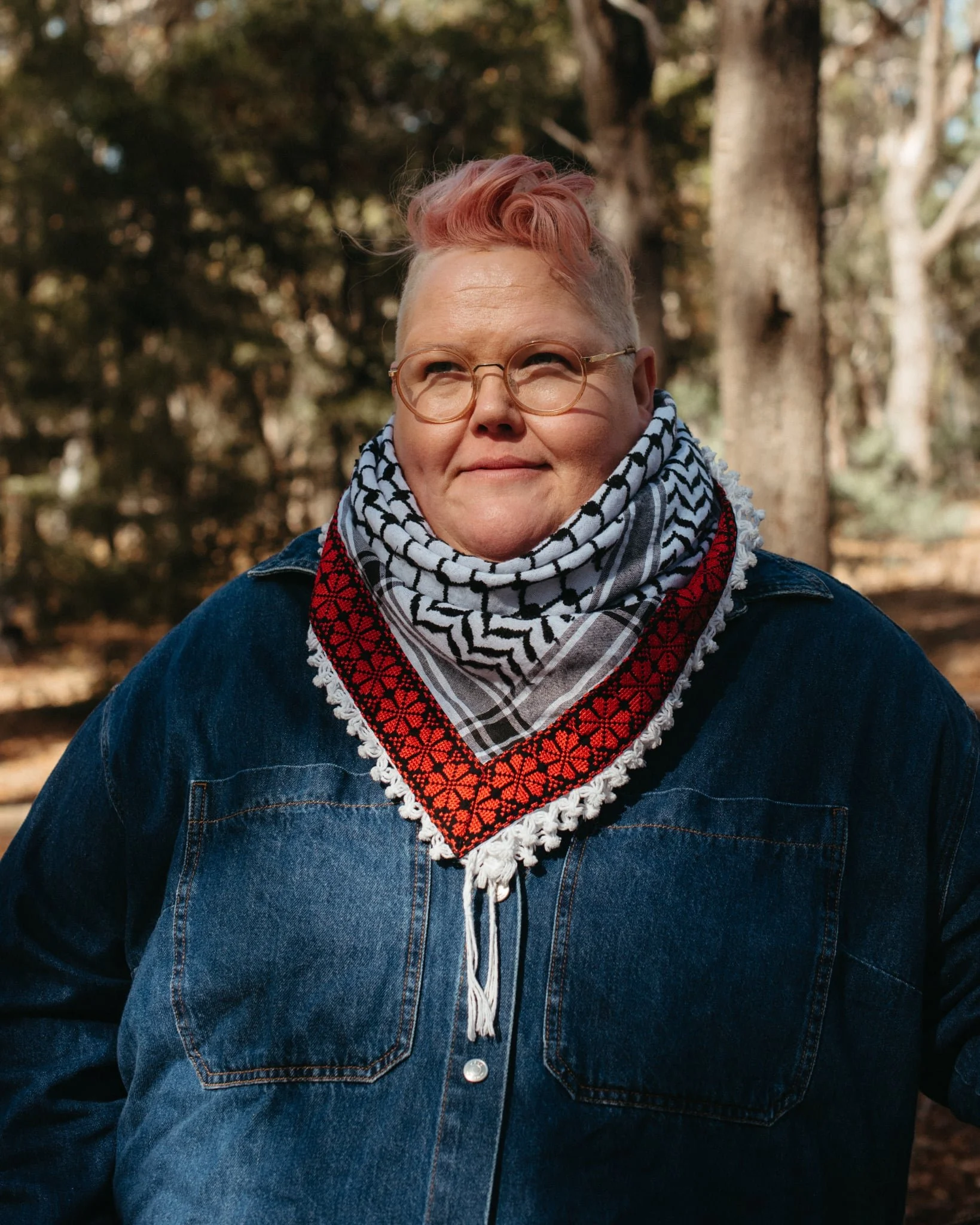Presenters
-
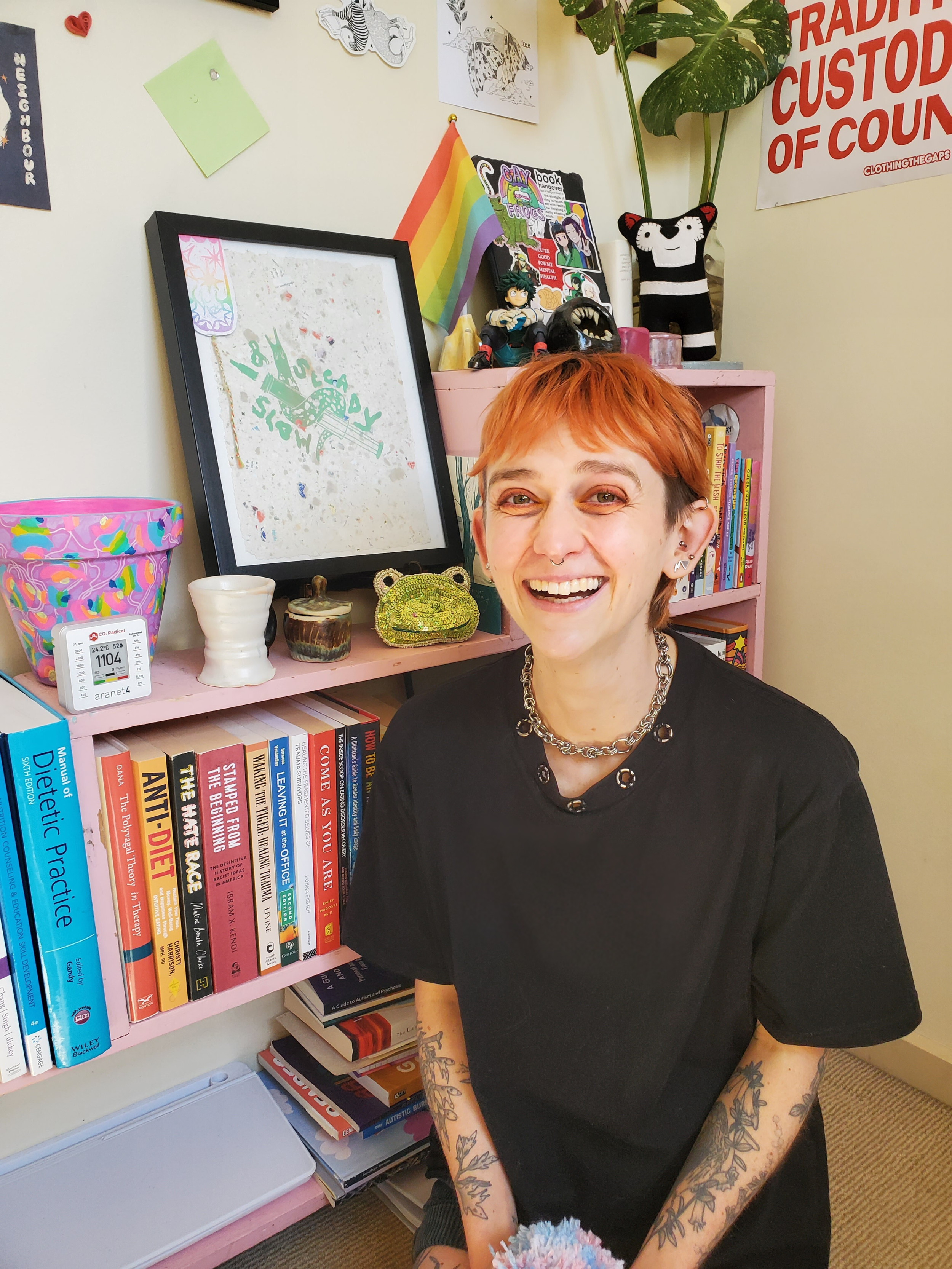
Lumen Gorrie (they/them)
Lumen Gorrie is a queer, trans, AuDHD, chronically ill, disabled person, living and working on unceded Wurundjeri Land. They are a clinical psychologist, advocate, board-approved supervisor, educator, lived experience speaker, and founder of the Appetite for Change Project.
Lumen’s work focuses on understanding and supporting the intersections of neurodivergence, gender, queerness, chronic illness, and disability; eating differences, difficulties, and disorders; and relationship with body. They work from an anti-oppressive, depathologising, trauma-informed, identity-affirming, body and weight inclusive framework, centring lived experience, autonomy, and community wisdom. Lumen is also passionate about unpacking, transforming, and redressing models and systems that harm marginalised folk, working toward approaches that are more affirming, inclusive, and accessible for all.
Outside of this, Lumen has a tiny dog (Nina) and slinky cat (Grimmeow) who they adore endlessly, and often hang out with while reading, baking sans recipe, or crafting trinkets.
-

Majella Jones (they/them)
Majella Jones is a queer, trans, bipolar AuDHDer, chronically ill, disabled dietitian and PhD candidate, living and working in Naarm on unceded Wurundjeri Land. Their work in private practice includes primarily supporting LGBTQIA+, neurodivergent, disabled, and chronically ill people with eating differences, difficulties, and disorders. Majella's PhD is on trans health and nutrition, exploring trans health education and inclusive practice approaches.
Majella an advocate and educator on gender inclusive health and neuroaffirming practice, having delivered professional development workshops, spoken at conferences, and guest lectured at local universities.
-

Kai Schweizer (he/they)
Kai Schweizer is a researcher and PhD candidate with a focus on eating disorders, gender diversity, neurodivergence, and their intersections. He is a Research Affiliate at the Inside Out Institute for Eating Disorders, working on the IncludED study: Australia's first study of LGBTIQA+ body image, disordered eating, and eating disorders.
Kai’s PhD project will produce Australian-first guidelines for best practice in treating eating disorders in trans and gender diverse people. They are also a small business owner, providing consultation and professional development on supporting LGBTIQA+ people with eating disorders.
-
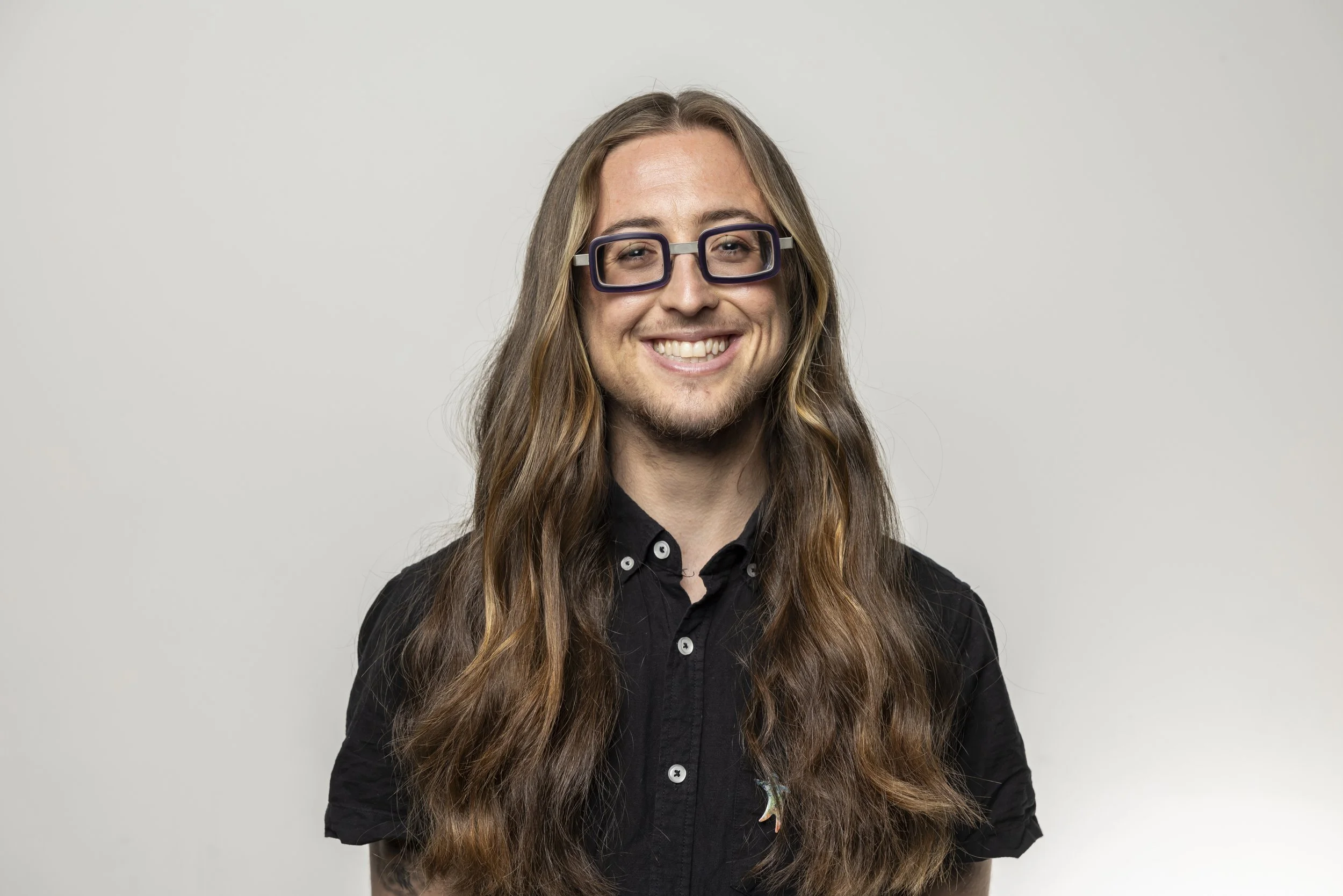
Hayden Moon (he/they)
Hayden Moon is a strong advocate for the LGBTQIA+, Indigenous, and Disabled communities. He is an award winning performer, academic and advocate. They are also currently studying a PhD in Theatre and Performance studies.
Hayden has lived experience of anorexia and disordered eating. He is also Autistic and understands eating differences. Hayden hopes to use his experience to educate the broader community (especially clinicians) to adequately support LGBTQIA+, First Nations, and disabled people with eating disorders, in the most affirming way for their own healing.
-

Marie Camin (she/her)
Marie Camin is an Autistic clinical psychologist, advocate, researcher, and board-approved supervisor who joins us from Wurundjeri Country. Her work bridges clinical practice and research, with a focus on affirming, trauma-informed approaches that centre Autistic voices. She has advised on both private and government initiatives which impact the Autistic community, including the National Roadmap for Improving the Health and Mental Health of Autistic People.
In her natural habitat, Marie can be found wandering through gardens, plotting her next Magic: The Gathering deck, or scheming up ways to sneak more whimsy into psychology.
-

Claire Weiss (she/her)
BIO
-

Annelil Desille (she/they)
Annelil is an AudHDer clinical psychologist and sexologist, using their personal experiences, along with clinical expertise in the field to work with neurodivergent individuals. Her special interests include neurodivergence, mind/body connection, sexuality, gender, relationships and intimacy, attachment, and spirituality. She holds her Certificate III and IV in Fitness, Master of Clinical Psychology, Postgraduate Diploma of Psychology, and, Bachelor of Psychological Science.
Lil completed their honours thesis on eating differences and attachment orientation, and has both clinical and lived experience within this domain. She utilises her array of knowledge and passion for all things sex, relationships and intimacy to support neurokin with their ability to deepen and strengthen connections together across multiple contexts. Lil has developed and created incredible resources, as well as events and courses that are tailored specifically to the AuDHD community, included but limited to couples retreats, an online portal for relationships and more. These events and resources have largely been complimented by our neurokin for their level of inclusivity, adaptability and resourcefulness.
-
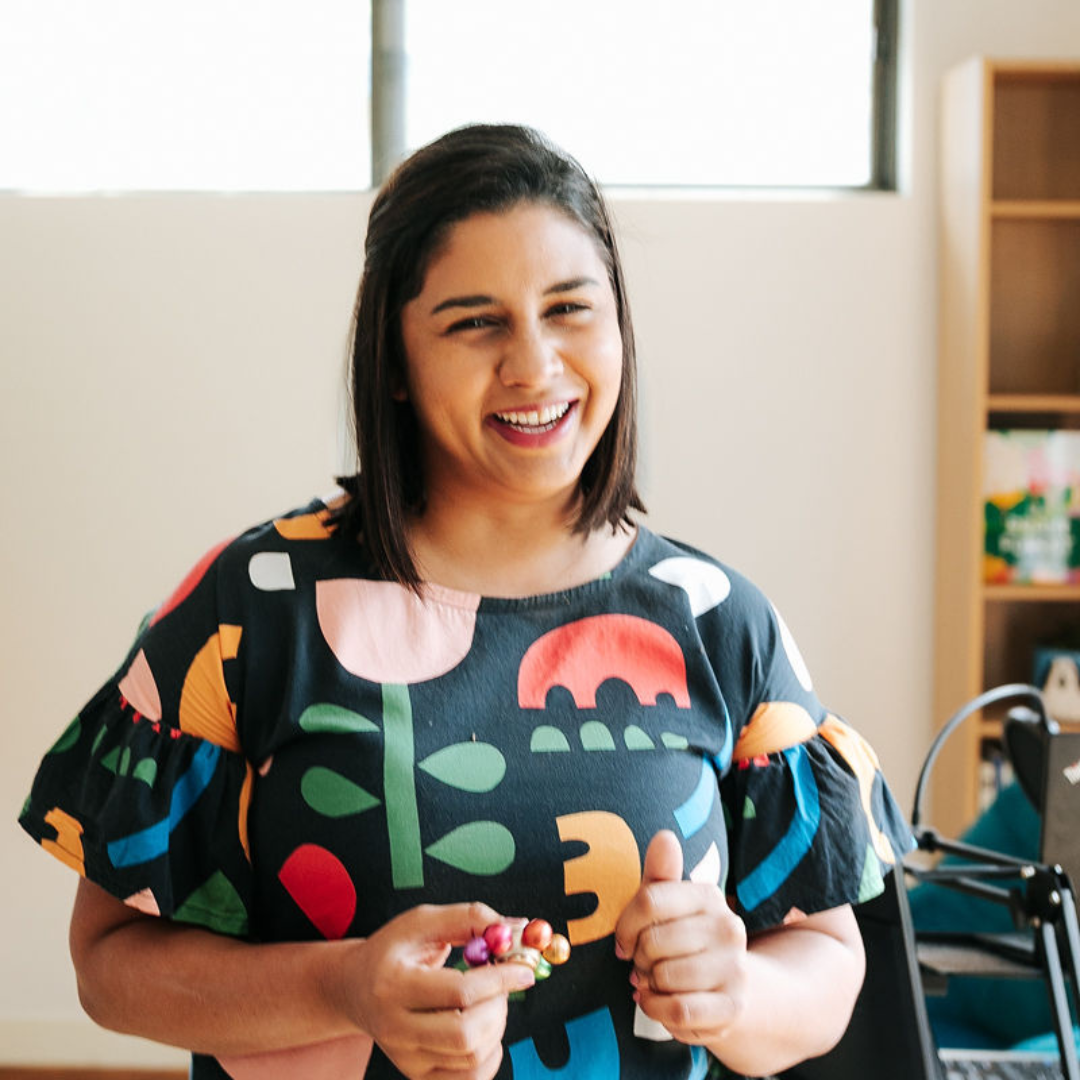
Sandhya Menon (she/her)
Sandhya Menon is an AuDHD Developmental Psychologist and Author of the much-loved kids’ books The Brain Forest, The Rainbow Brain, and her latest creation, My Body’s Power Pack. She spends her days helping children and families build strong self-identities that celebrate and know their neurotype before the world tries to tell them otherwise.
Her work is a mash-up of sharp clinical knowledge, lived experience, and just enough whimsy to make even the trickiest concepts feel human (and yes, actually fun). She also draws from her collectivist family roots in Singapore and her neurodivergent self to call out Western and neuronorms that don’t serve our communities and make conversations truly inclusive and representative of our different realities.
If you were looking for someone who can turn research into real talk while keeping it warm, inclusive, and a sprinkle of fun, we've found her. -

Ari Spanos (they/them)
Ari Spanos is an Accredited Practising Dietitian and Lived Experience Advocate, living and working on unceded Bidjigal land.
Their lived experience as a queer, neurodivergent, disabled, mad, small, fat person informs their work - with a particular interest in the complex connection between eating disorders, gender identity, sexuality, neurodiversity, and body size. Their approach to eating disorder care prioritises autonomy, harm reduction, and community care.
Ari is guided by values of authenticity, compassion, humour, creativity, and justice. Outside of work, their interests include Pokemon, D&D, crafts, music, video games, spending time with their dog, and connecting with community.
-
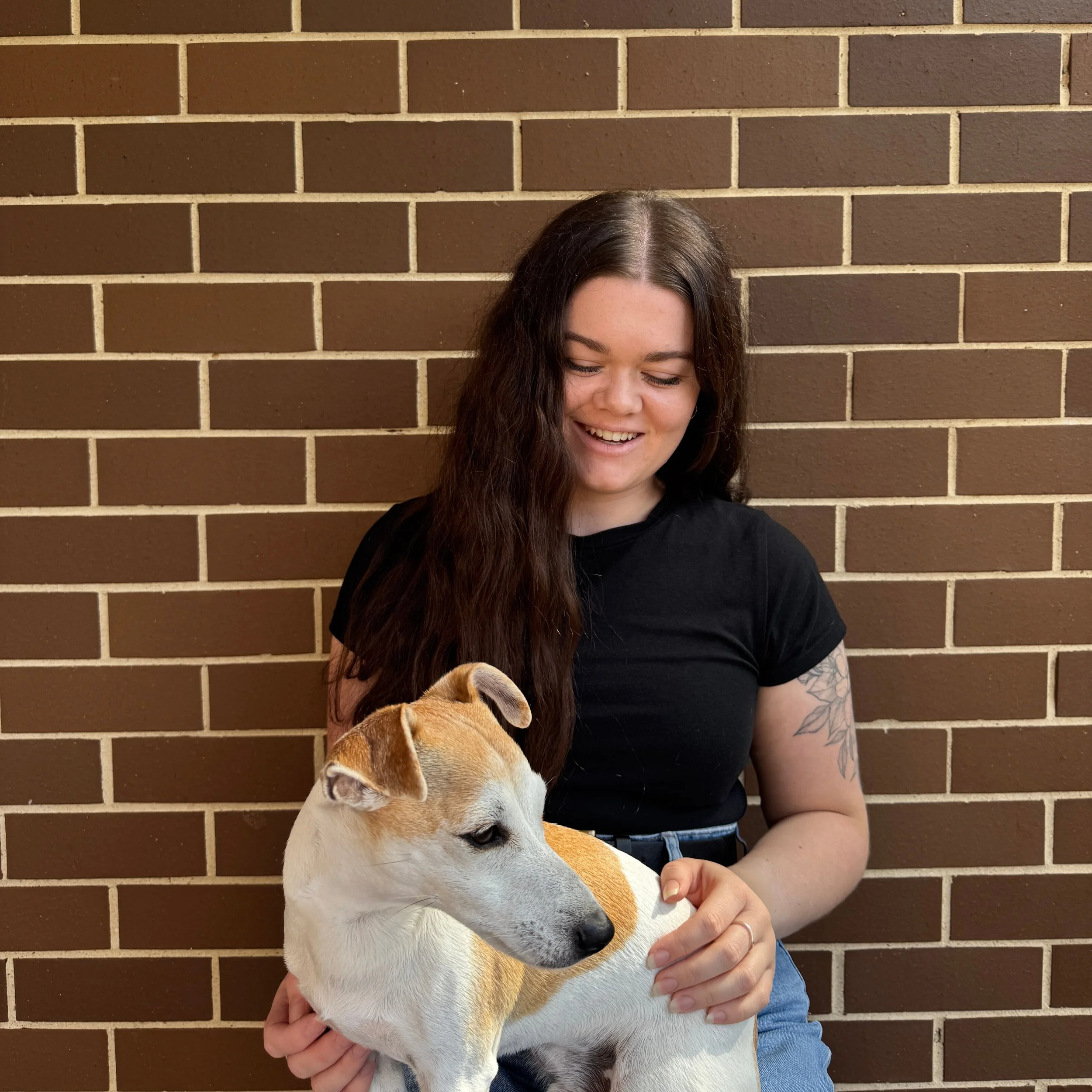
Isobel Kelly (she/her)
Isobel Kelly is an Autistic and ADHDer psychologist working in private practice. Her clinical work focuses on providing collaborative assessments and support for Autistic and ADHDer adults who are experiencing eating disorders, eating difficulties & differences, and experiences of trauma. She is passionate about challenging societal biases around weight, body and eating, and neurotype, and strives to work from a holistic and intersectional perspective.
-
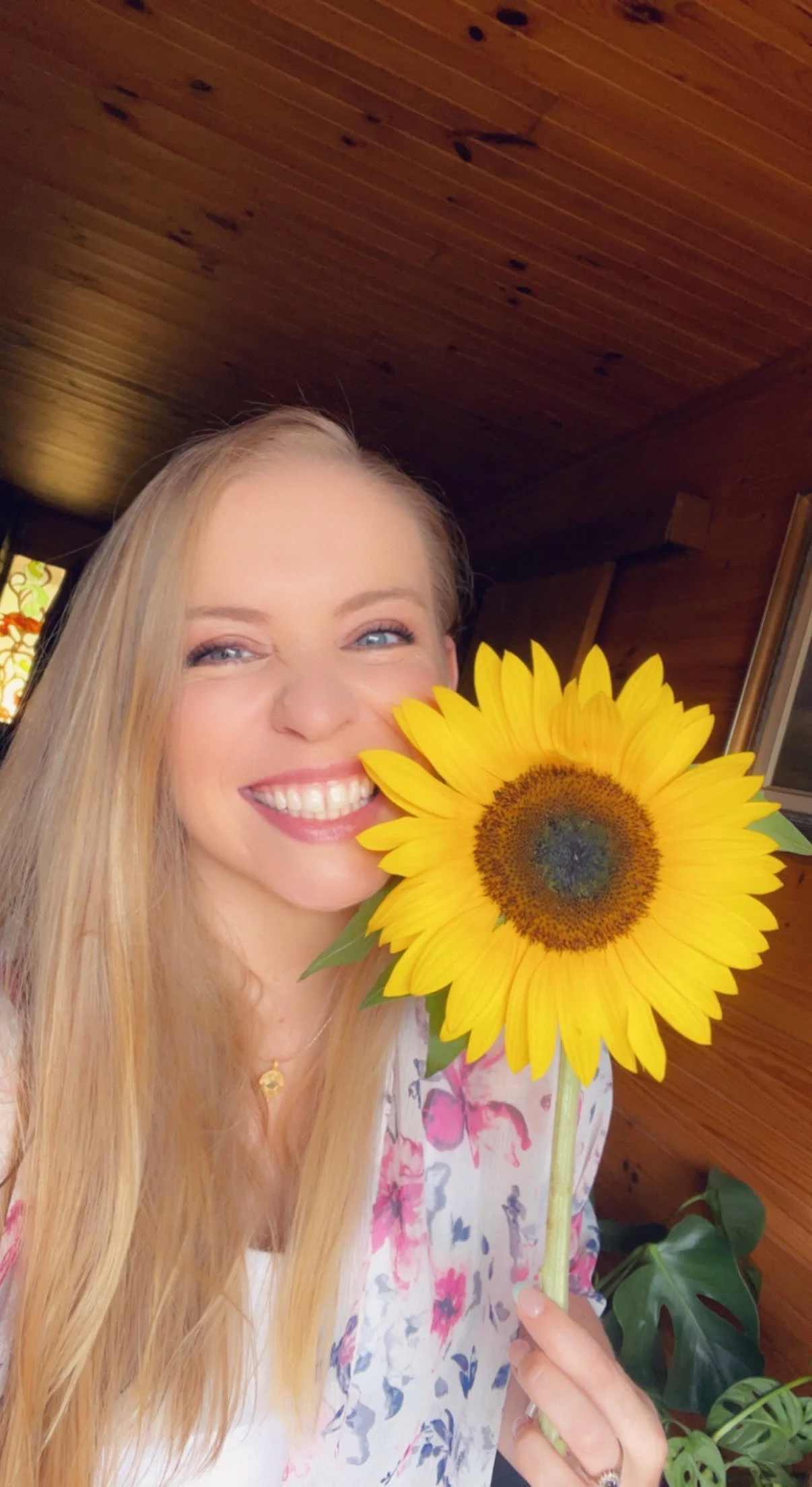
Steph Robertson (she/they)
Steph Robertson is an experienced multiply-neurodivergent occupational therapist, speaker, and advocate, with a commitment to trauma responsive and neurodiversity-affirming practice. Steph draws on her professional, research and lived experience in her work. Through her work, she empowers individuals, parents, therapists, and educators to foster understanding, self worth, and connection within the neurodivergent community. Steph delivers impactful talks, trainings, and resources designed to support the deep socio-political shift to more inclusive and affirming spaces for all people.
-

Esther Fidock (she/her)
Esther Fidock is an AuDHD psychologist and the founder of The Neuro Nurture Collective, a telehealth clinic providing neurodiversity-affirming therapy and autism assessments for adults across Australia. With a background in trauma-informed care and a deep commitment to accessible, inclusive practice, Esther works with late-identified neurodivergent adults, many of whom have complex relationships with food, body, and identity.
Her work centres the lived experiences of autistic people and challenges traditional clinical models by prioritising safety, collaboration, and self-understanding. Esther provides autism assessments for adults, facilitates professional development relating to neurodiversity affirming practice, consults on research as a casual academic, and is a passionate advocate for systems change in mental health and allied health.
She brings warmth, clinical insight, and a strong values base to her work, always with the goal of making psychological support safer and more affirming for neurodivergent people.
-

Amy Woods (she/her)
Amy Woods is a Doctoral Candidate completing the Doctorate of Public Health, living and working on unceded Wurundjeri Land. She is a clinically registered PACFA counsellor in private practice, and a lived experience consultant.
Amy has completed a Bachelors in Counselling, a Graduate Certificate in Forensic Behavioural Science, and has vast experience in combining lived experience work with clinical support. Amy is passionate about working in Eating Disorders, and the importance of honouring the diverse voices of lived experience.
-
Tina McPhee (she/her)
Tina McPhee is a PhD candidate at the University of New South Wales (UNSW), and a lived experience advocate, living and working on unceded Gadigal Land. She has experience as both a student, teacher, and object/subject of criminology, having spent time in prison and under community corrections orders.
Tina campaigns and advocates for the recognition and inclusion of lived experience expertise, and is working to see person-centred language replace harmful system language. In addition to her work with the Justice Reform Initiative, Tina teachers at UNSW, and is undertaking a PhD in Law about the collateral consequences of conviction.
-
Sandi James (she/they)
Sandi James is a registered Psychologist and Certified Eating Disorder Recovery Coach with more than 15 years working in mental health, eating disorder, and addiction treatment. She is a lived experience clinician and dedicates her career to working with clients that feel let down by current systems of care and treatment approaches. Their primary focus includes mental health and trauma recovery, with a particular focus on co-occurring presentations including substance use or food and compulsive exercise related difficulties.
Sandi has extensive experience working with individuals and families to heal and recover from trauma, addictions, eating disorders, and mental health conditions. They are dedicated to working with clients and families from an inclusive and person-centred approach, to improve quality of life from a harm reduction perspective. She is a passionate and committed clinician, working alongside and guiding clients in the recovery process. Sandi is working towards her PhD conducting qualitative research looking at experiences of eating disorder treatment: identifying, responding to, and addressing harm experienced throughout the treatment process.
-
Jasper Peach (they/them)
Jasper Peach is a trans, non-binary and disabled writer and parent. They are passionate about equitable access and inclusion, dismantling misplaced shame via storytelling.
Their current project is a mosaic memoir A Thousand Spinning Plates on Fire. This work of narrative non-fiction is an exploration of life across the intersections of queer, disabled, fat bodied, transgender, parent, non-binary, neurodivergent and activist identities. Presented in prose, poetry and other forms, the work is non-linear and is the opposite of a redemption story with a neat and tidy ending. It is something new and lyrical, introducing the reader to satisfyingly loose ends. A scorchingly honest, tender and hopeful story of what it is to be human across intersections.
-
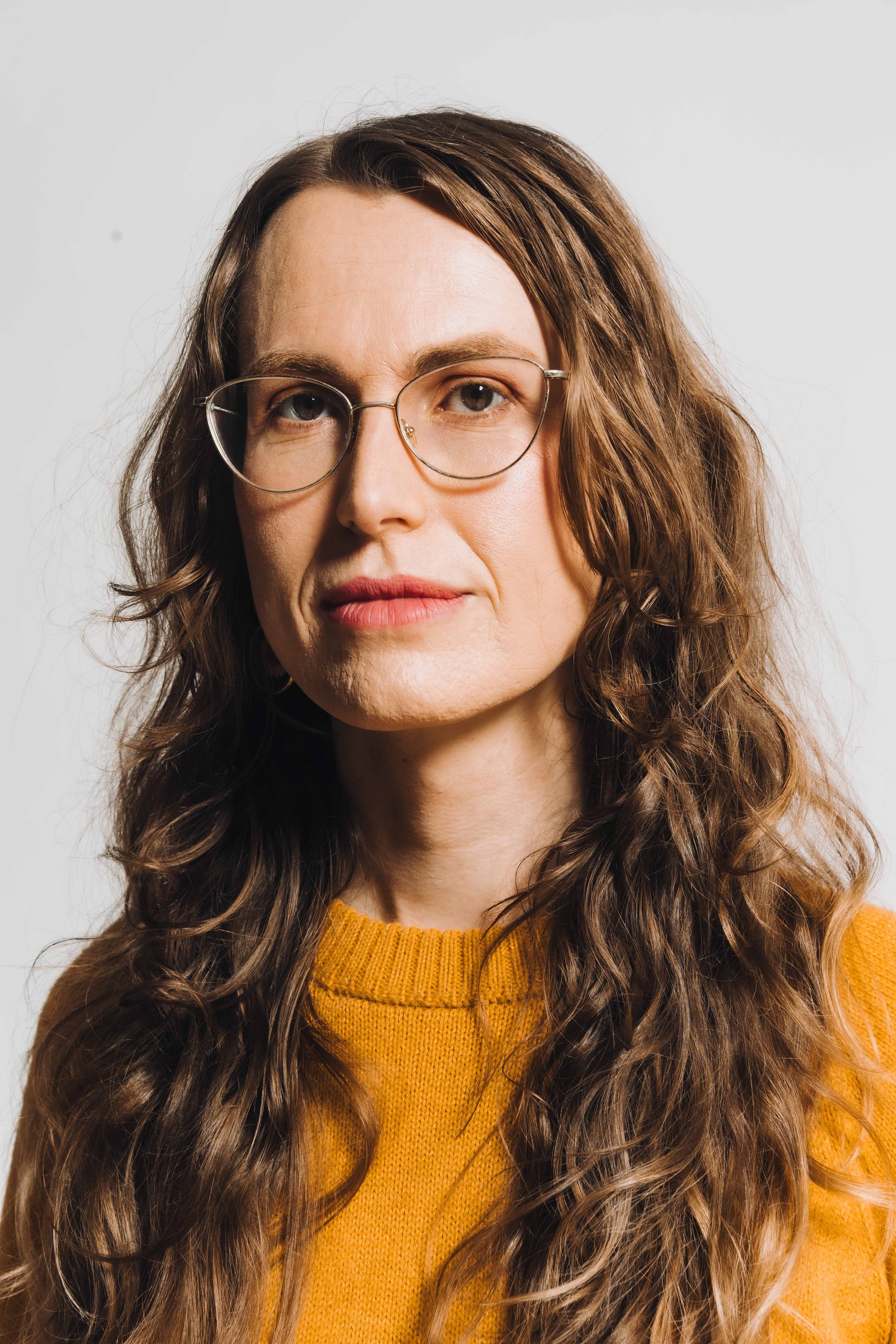
Juniper Muller (she/they)
Juniper Muller is a queer, trans psychologist with particular expertise in gender, sex, and sexuality, living and working on Wurundjeri Land.
Juniper’s contributions to the trans and gender diverse community are both invaluable and immense. In addition to her work therapy practice, Juniper hosts the Trans Sexual Podcast, runs the Victorian Inclusive Practitioners List, and is involved in advocacy and community building (amongst about a hundred other side projects!).
-

Khadija Gbla (they/them)
Khadija Gbla is a disabled, queer, award-winning human rights activist, inspirational speaker, writer, and philanthropist. Born in Sierra Leone, raised in Gambia and now based in Australia, they bring powerful lived experience as a refugee, Black African Indigenous person, Autistic ADHDer and community leader.
Khadija is the founder and lead campaigner of Ending Female Genital Mutilation Australia and their TEDx talk "My Mother's Strange Definition of Empowerment" has been viewed close to 3 million times worldwide. They are also a member of the LGBTQIAP+ Minister's Council and the Autistic Parent Co-Design Group.
Through their consultancy, Khadija Gbla Cultural Consultancy, they deliver webinars, training packages and bespoke consultancy, on racism, disability, neurodivergence, gender equality, cultural diversity, human rights and inclusion. Recognised with numerous awards, including 2025 SA Woman of the Year Community Champion, Khadija utilises their voice to drive both systemic change and everyday actions toward true equality.
Photo credit: @alicehealyphotographer -
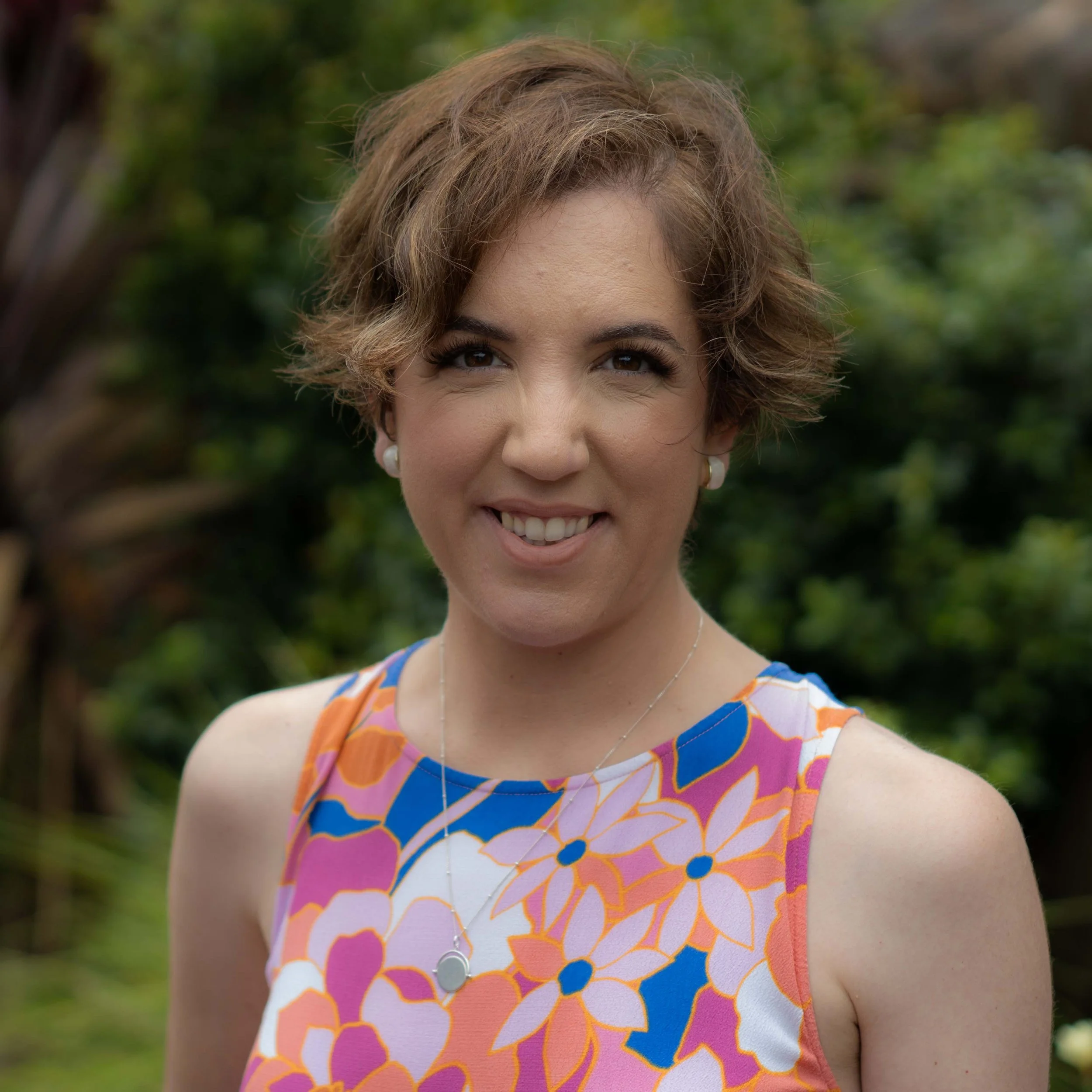
Chelsea Luker (she/her)
Chelsea Luker is an Autistic/ADHDer psychologist, author, and parent of two neurodivergent children. With a passion for neurodiversity-affirming practice, Chelsea draws on both her professional and lived experience to support Neurodivergent individuals and their families.
Through her work at Connect Us Psychology, she empowers parents, educators, and therapists to foster understanding, self-worth, and connection in Neurodivergent communities. Chelsea is also the author of Square Me, Round World, a collection of stories that highlight the experiences of growing up feeling different, and she delivers impactful talks, training, and resources designed to create a more inclusive and affirming world.
-
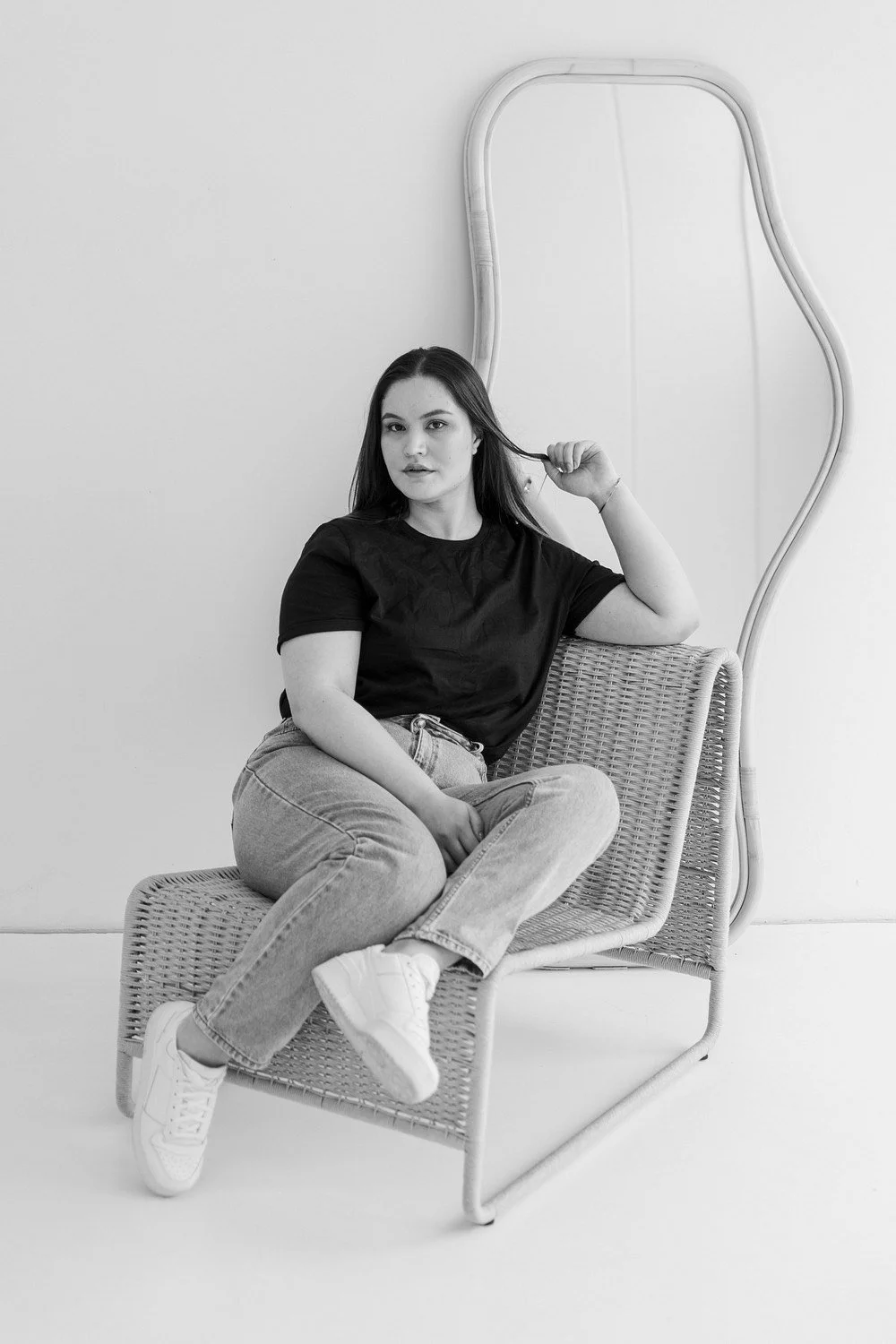
Amelia Tang (they/them)
Amelia Tang is a lived experience facilitator, advocating for NDIS participants in Specialist Disability Accommodation and group homes. They also act in their spare time. They are a survivor of Family Violence and childhood psychiatric Institutionalisation.
Amelia loves singing and playing guitar, has a 10 year old greyhound, and is passionate about mentoring others with their conditions. They also love educating people about enteral feeding, and the importance of early intervention for those with post viral illness. -
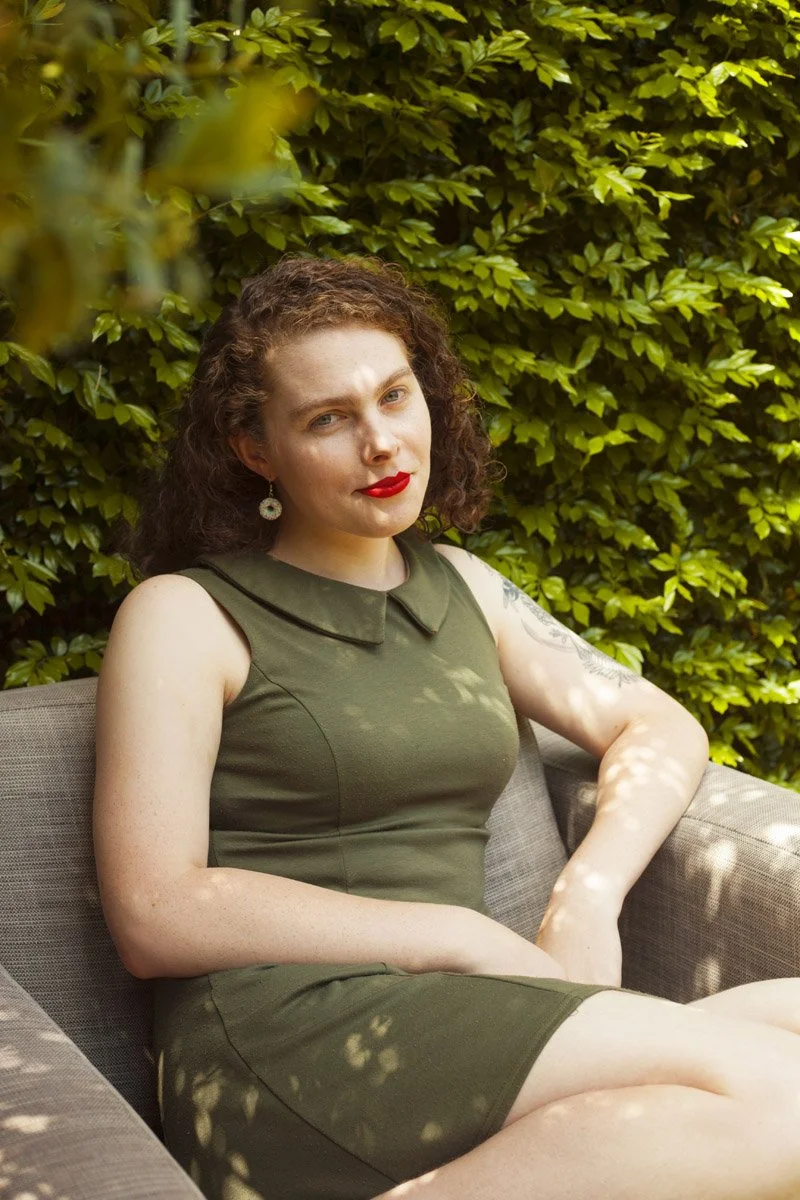
Liz Duck-Chong (she/her)
Liz Duck-Chong is a writer, researcher, and carpenter whose work straddles LGBTQ+ sexuality, storytelling. and education spaces. Liz is a proud trans and queer woman. and lives and works on Wangal and Gadigal land.
-
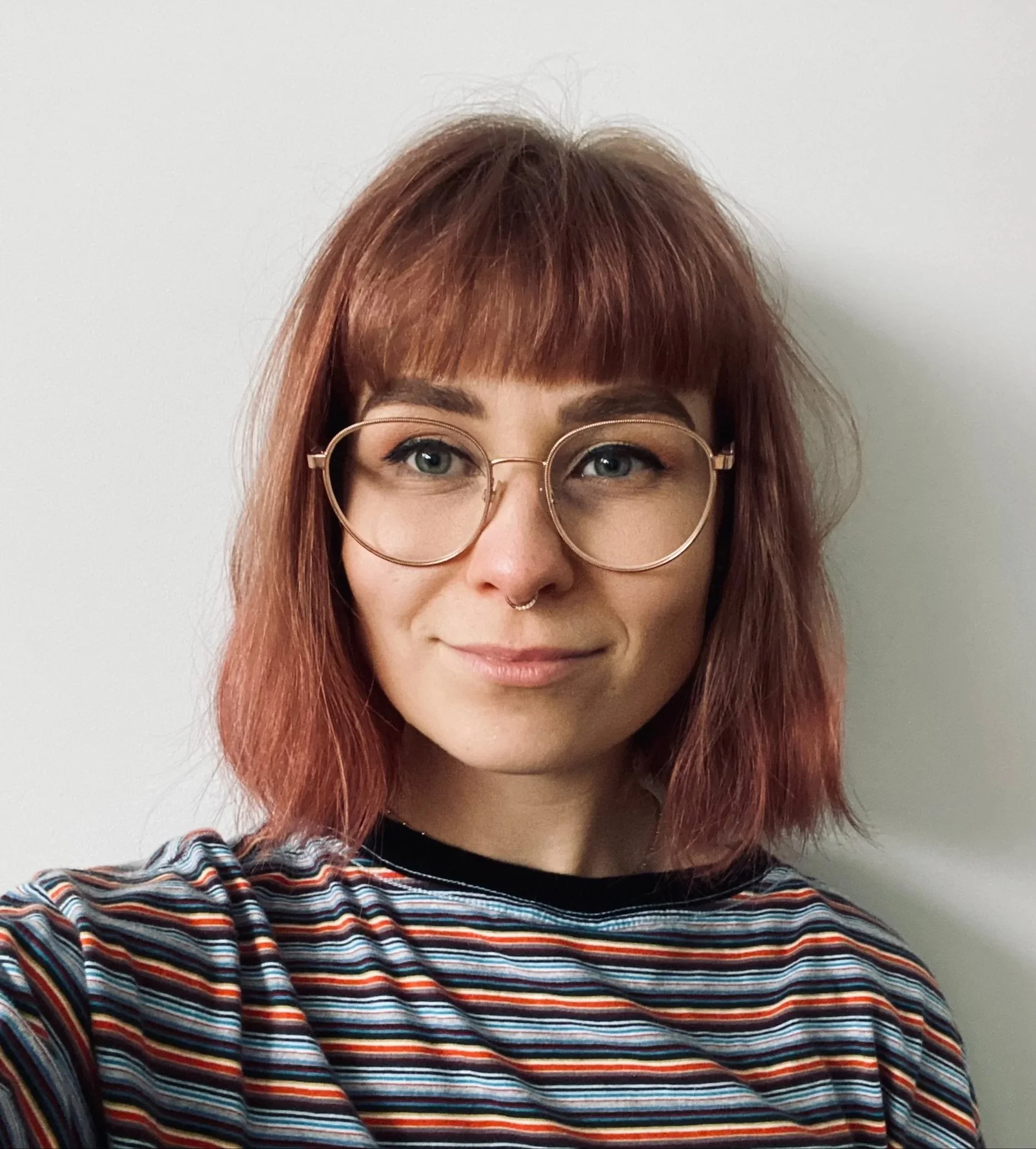
Yasmine Hooper (she/her)
Yasmine (Yas) is a researcher and advocate whose work is shaped by her survival of eating disorder treatment and a commitment to rethinking how distress is understood and responded to. Her PhD looks at how treatment practices for eating disorders, often presented as care, can cause harm and be internalised, shaping how people make sense of themselves and their experiences.
Yas is passionate about centring lived experience voices, challenging harmful approaches to care, and creating spaces for thinking about the possibilities for compassionate and empowering responses to distress.
-
Hibak Hissan (she/her)
Description goes here -

Zabe Sharpcat (ze/zir)
Zabe is the founder of End Weight Bias, a not-for-profit organisation working to create systemic change across health, policy, and culture. Ze brings both lived and professional experience to zir advocacy. As a fat, neurodivergent person, Zabe has experienced medical trauma, misdiagnosis, and daily microaggressions, in systems that are supposed to help. These experiences fuel a deep commitment to shifting how society understands health, weight, and care.
With over 15 years of leadership in the not-for-profit and community services sector, Zabe’s work spans strategy, advocacy, and program design. Ze is passionate about centring community voices and drawing on research to drive change.
Zabe’s work sits at the intersection of lived experience and structural critique, always asking: how can we collaborate to create something better?
-
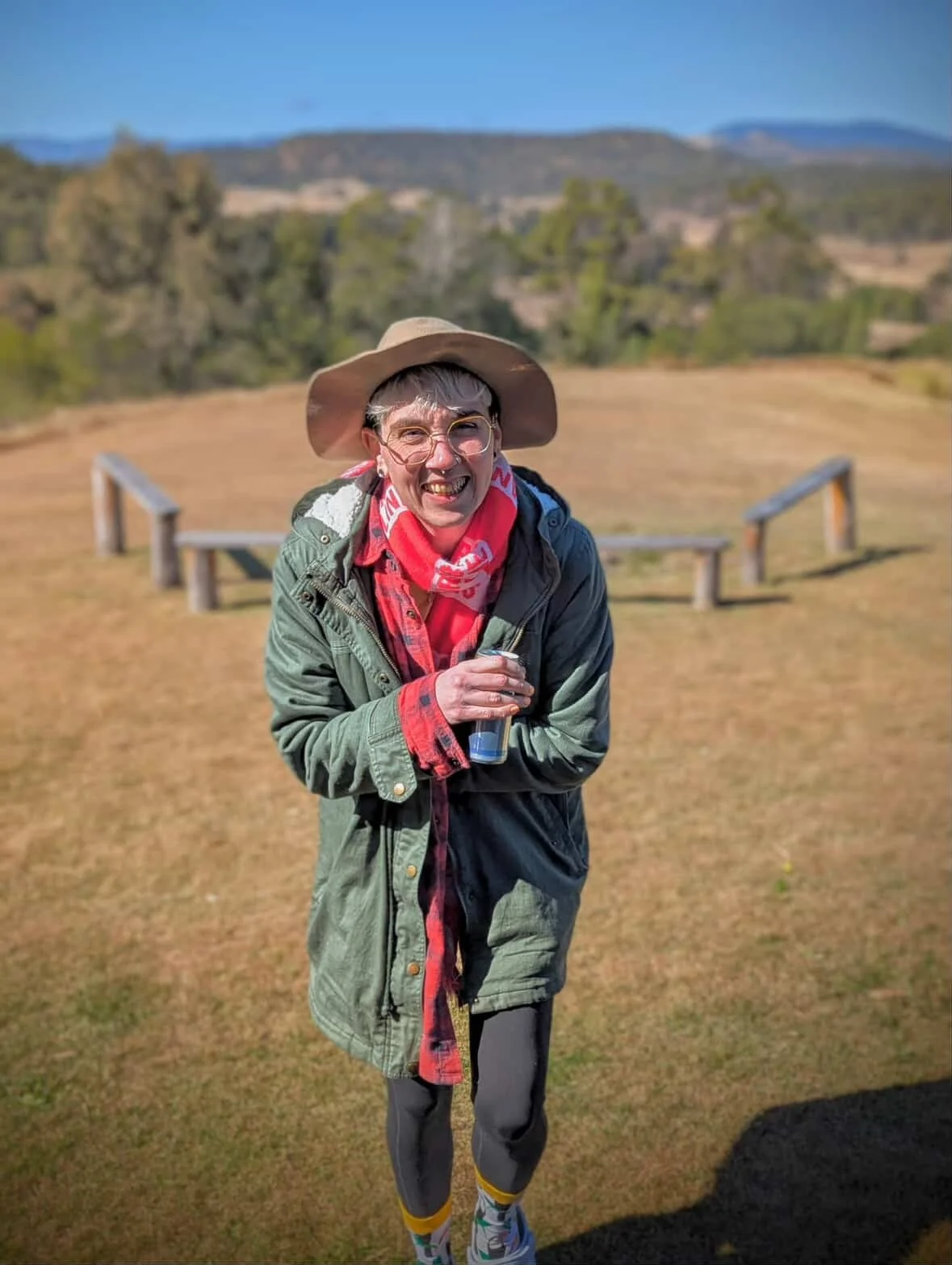
Brody Hayes (they/them)
Brody is a neurodivergent, queer, non-binary gender gremlin, who finds ways for community connection wherever they are. Brody is a firm believer in creating better accessibility in our communities, especially within local music and cultural events.
Brody is a co-host on Queer Radio & Tranzmission on 4ZZZ, and the host of Static Mindzzz on Zed Digital, which focuses on mental health lived experience advocacy, and the impact that music can have on the rollercoaster journey that is life and how we create ones own “Mental Mixtapes”.
Away from 4ZZZ, Brody is a staunch advocate within the Mental Health and Disability space, using their own lived experiences to facilitate change. Brody is the chair of a LGBTQIA+ special interest group within the Mental Health Lived Experience Peak Body QLD, and works within systems advocacy at many different levels. Brody is the founder of Outspoken Training, providing mental health lived experience consultancy and LGBTQIA+ affirmative practice training from a very real lived experience perspective.
Brody is also involved in organising International Non-Binary People’s Day Meanjin (Brisbane), and strongly believes in the power of accessible and welcoming grassroots community events.
-
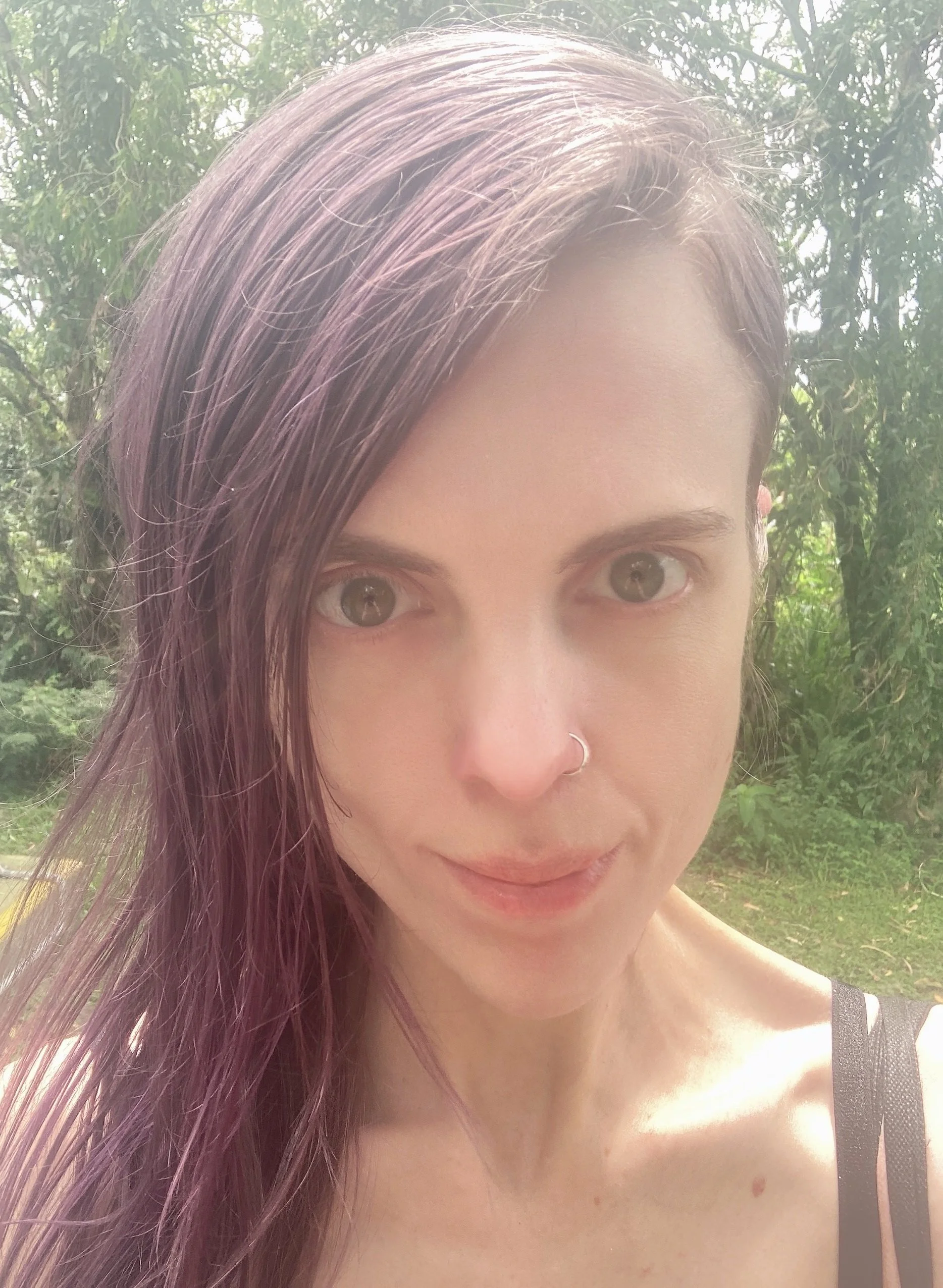
Rosiel Elwyn (they/them)
Rosiel is a non-binary, neurodivergent mental health and neuroscience researcher, living and working on Gubbi Gubbi Country, Queensland. Their PhD centred on the neurobiology and phenomenology of longstanding anorexia nervosa and trauma, informed by lived experience.
Rosiel works as a lived experience post-doctoral researcher and lived experience advisor, with work spanning eating disorders, trauma/PTSD, suicidality, self-harm, psychosis, neurodivergence and LGBTIQ+ intersections, physical health in people with mental health concerns, and patient rights in psychiatric settings. They are passionate about mental health service reform, trauma-responsive treatment, health equity, and lived experience involvement in research.
Rosiel loves collaborating and learning from others and is happiest when working in partnerships on exciting projects. They have a particular love for mushrooms, fungi, and slime molds, bioluminescence, and petrified wood 🍄
-
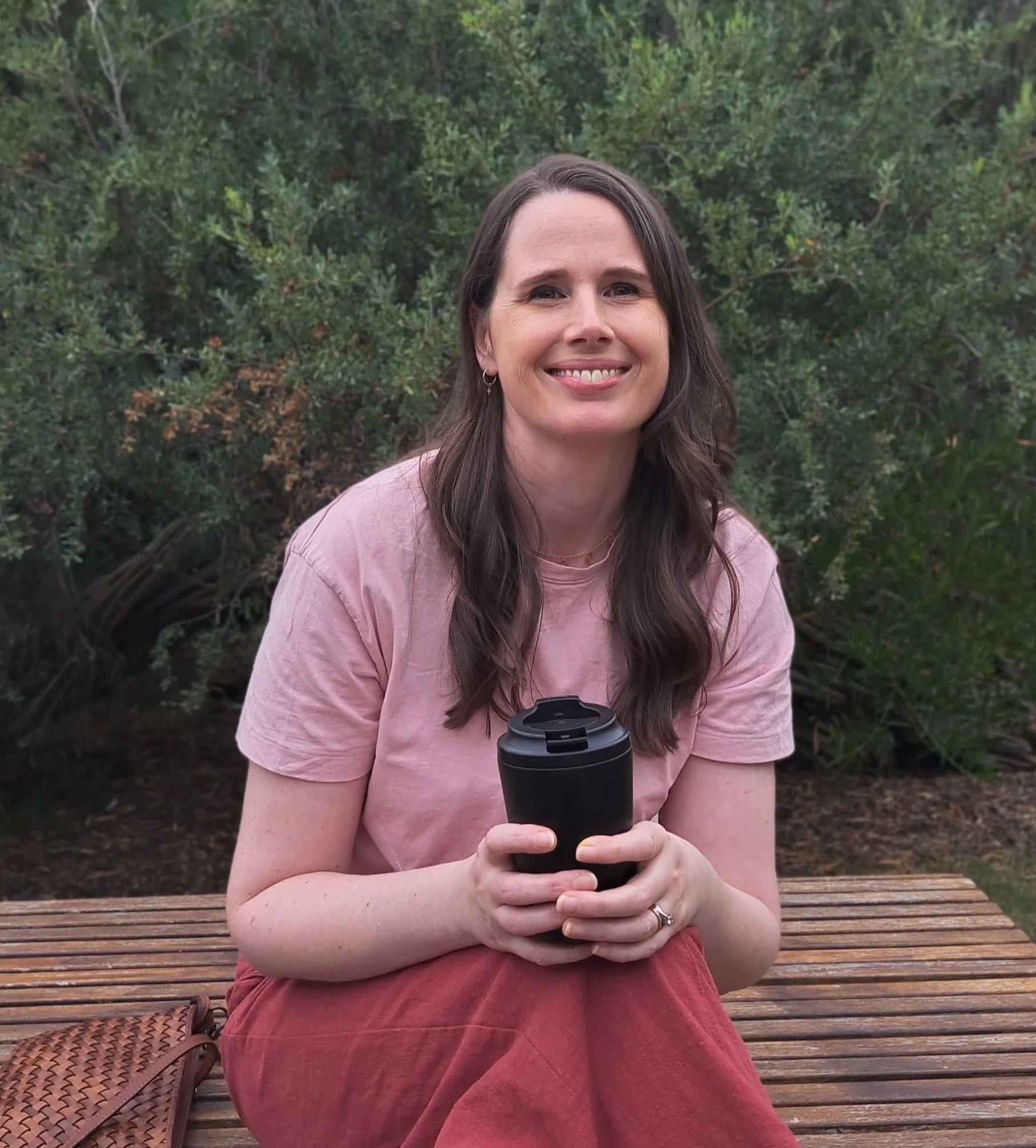
Margo White (she/her)
Margo White is a Certified Practicing Nutritionist and the founder of Whole Body Nutrition, based on Wurundjeri Country. Her practice specialises in supporting Neurodivergent individuals of all ages, genders, and backgrounds to cultivate an emotionally healthy relationship with food.
As a proud AuDHDer and mother of two, Margo brings together her professional expertise and lived experience into everything she does. Margo understands the complex realities families face when feeding challenges intersect with neurodivergence, sensory needs, stress physiology, and trauma.
Known for her neuro-affirming, trauma-informed approach, Margo supports families navigating ARFID and feeding differences to honour diverse eating patterns, reduce pressure, rebuild connection, and create predictable, safe environments where eating can flourish naturally.
